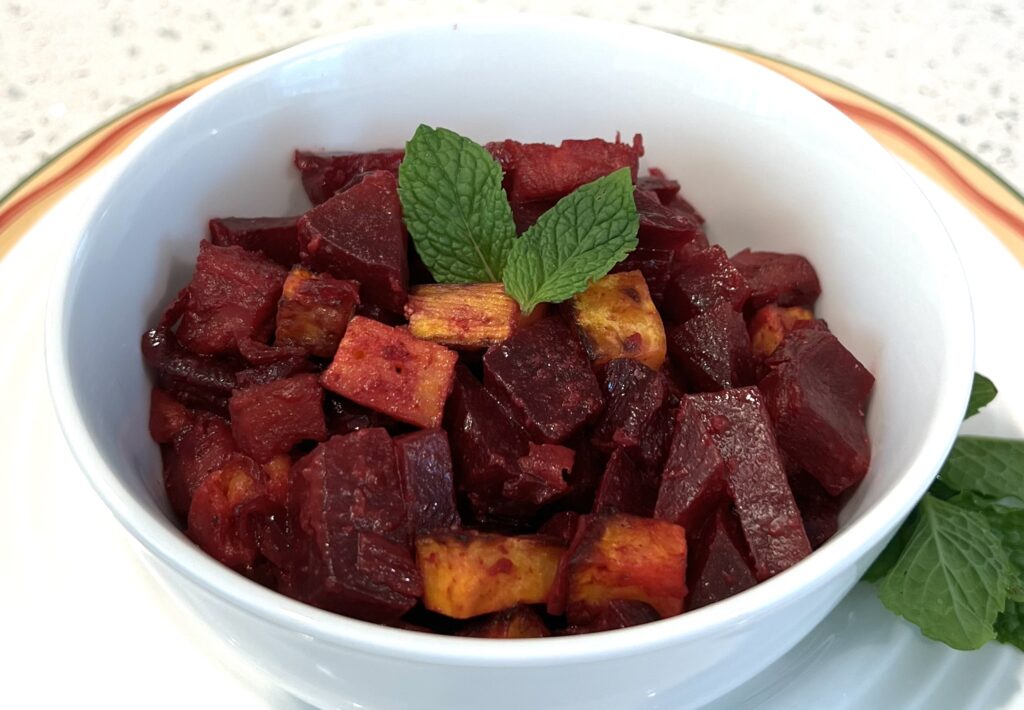Shake Up Your Cooking Routine with a New Side Dish or Salad

Photo by Ingrid Beckman
Every once in a while, I need to shake up my weekly cooking routine with a new side dish or salad like today’s Sweet and Savory Beets with Sweet Potatoes. Like most home cooks who are still working, I tend to cook the same sides over and over again, just to keep menu planning and cooking time to a minimum.
Although dinners at our house are always delicious, even I get bored with my own cooking on occasion! That’s when it’s time to create a new dish. This one is a delicious side dish or salad made with cooked root vegetables.
Versatile Cooking and Serving Options
If you’re making this during your work week, you may want to roast the beets the night before you make the dish, since it takes about an hour to roast beets (and occasionally more if they’re on the large side.) After you take them out of the oven to cool, be sure to rub the skins off the beets while they are still a little warm. (I find it’s harder to rub off the skin once the beets have been refrigerated.)
If you have an Instant Pot and a steam basket, you may prefer to pop the beets into the pot and set them to steam with low pressure for 10 minutes to be ready for you when you arrive home to cook. The diced sweet potatoes will roast in 20 minutes, so these won’t be an issue when you’re ready to cook.
This dish is delicious when served warm from the oven. With summer just around the corner, it also doubles as a lovely summer salad at room temperature.
Subtle Spices Make the Difference
This recipe was inspired by a yummy dish I tasted at my friend Elizabeth’s home. I added some Ayurvedic touches by adding spices—cinnamon and cardamom—to balance the kapha nature of both the beets and sweet potatoes. Although the sweet potatoes and beets are plenty sweet, I added some coconut milk to further balance the particularly sour taste of balsamic vinegar.
According to Ayurveda, we should eat all six tastes during a meal to support digestion. I added a bit of cumin and coriander so that the dish would include all six tastes identified by Ayurveda:
- Sweet (cardamom, cinnamon)
- Sour (balsamic vinegar)
- Salty (salt)
- Pungent (cardamon, cinnamon,)
- Bitter (cumin)
- Astringent (cumin, coriander)
Enjoy this dish of Sweet and Savory Beets with Sweet Potatoes and take the boring out of everyday dinners!
Print



